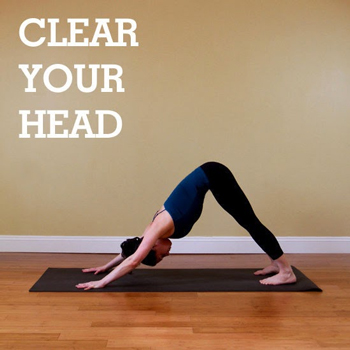Post Election Day Self Care
November 9, 2016
Need a little Post Election day self care? I know I did ! I am more sensitive than I care to admit and I like harmony. I know this about myself and have many good practices in place, however the energy and the duration of this year’s election did cause me to take extra care today.
When life gets a little crazy and uncertain I go to the yoga mat, hug my love, take magnesium and try to think positively.
How we Think determines how we Feel determines how we Act.
So instead enjoy this from MindbodyGreen: My healthy Thanksgiving post can wait till next week.
Below, a few quick and easy ways to take you from stressed to zen.
1. Take a chill pill.
And by that, we mean magnesium. Magnesium is the relaxation mineral, and 99 percent of us are deficient. Dr. Ellen Vora, a holistic psychiatrist and mbg class instructor, says that upping your magnesium intake signals your muscles to unclench, and your mind will generally follow. You can also do an Epsom salt bath or foot soak, which allows the magnesium to be absorbed through your skin.
2. Keep a 1:1 ratio of election coverage and exercise.
Dr. Robin Berzin of Parsley Health recommends that her patients balance each hour of election coverage they consume with an hour of the preferred exercise. This will help to balance out the nervous system, which has probably been on overdrive for days or weeks leading to Election Day. “We have patients who never experienced anxiety or insomnia writing us with symptoms of both. Yoga, a calming walk in nature, or a great sweaty workout help stimulate the vagus nerve and parasympathetic nervous system so you can be in rest and digest mode as we usher in the next president,” says Dr. Berzin.
3. Try 4-5-8 breathing.
About one third of the breath in your lungs never recirculates, and this exercise—inhaling for 4 counts, holding on the inhale for 5, and exhaling for 8—gives your lungs a literal breath of fresh air. When you’re stressed, your breath often quickens, even if you’re unaware of it happening. A short, quick, and shallow breath tells your body it’s time to get into “fight or flight” mode, creating more stress and vicious cycle of physical and psychological responses. This 4-5-8 breathing pattern has been proven in numerous studies to immediately interrupt that cycle, immediately sending a relaxation message to your nervous system. Dr. Bob Moody, a cognitive behavioral therapist, finds it more effective than pharmaceuticals in dealing with his client’s panic attacks. Try it—after three or four rounds, you should be feeling noticeably calmer.
4. Put your legs up a wall.
While there are a number of yoga poses that are help to counter anxiety, legs up a wall is one of our favorites. It doesn’t make you sweaty or require any special skills or equipment (you don’t even need a yoga mat) and the feeling of instant calm it delivers is delicious. A mild, easy inversion, this pose reverses the flow of blood in your body and calms your nervous system. To get into it, lay on the floor near a wall and scoot your hips as close to the wall as possible. Swing your legs up to rest against the wall, close your eyes and revel in the chill for at least two minutes. Want even more zen? Try some 4-5-8 breathing while you’re there.
5. Slap on a smile.
A psychological magic trick, smiling is one of the best ways to feel happy—even if you’re not. While feelings of anxiety are often a reaction to physical symptoms, you can manipulate the system and use your body to trick your brain into feeling calm. Smiling, even if it’s completely fake, has been shown in numerous studies to actually make you happier. Bonus points if you smile at someone—we’re all trying to get through this together!
6. Sniff some herbs.
The essential oil found in herbs and flowers is super potent, and a powerful way to change your mood. According to Kayla Jacobs, our own beauty editor, lavender and chamomile are the go-tos. “Think of lavender as the Swiss Army knife of aromatherapy,” Kayla says. “Its calming and relaxing properties promote peace and ease feelings of tension. Chamomile, on the other hand, was used in ancient Rome to help soldiers keep their cool during times of war.” While rubbing a bit of diluted essential oil on your pulse points is ideal, teas can also offer therapeutic benefits, so brew up a mug of chamomile or lavender tea and breathe deep.
